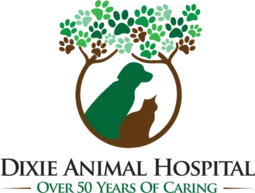- posted: Jan. 19, 2018

What Are Some Common Urinary Tract Problems in Cats?
Problems that affect a cat’s lower urinary system often prevent the bladder from emptying correctly or may even cause fatal blockage of the urethra, the tube connecting the bladder to the outside of the body. Very often the culprit is Feline Lower Urinary Tract Disease (FLUTD). Once called Feline Urologic Syndrome (FUS), FLUTD is not merely one problem, but a collection of clinical symptoms that may have more than one possible cause. Symptoms of FLUTD include frequent or painful urination, bloody urine and frequent licking of the urinary opening. One key to treating FLUTD is to determine the root cause, which may include bladder stones, urinary tract blockage, infection or cancer. If the cause of these symptoms cannot be determined, the cat is considered to have bladder inflammation (cystitis).
What Causes Lower Urinary Tract Problems in Cats?
- Stones, crystals or debris accumulation in the bladder or urethra
- Urethral plug (accumulation of debris from urine)
- Bladder inflammation or infection
- Incontinence from excessive water drinking or weak bladder
- Injury to, or tumor in, the urinary tract
- Stress
- Spinal cord problems
- Congenital abnormality
What Health Conditions Might Lead to Lower Urinary Tract Problems?
Endocrine diseases such as hyperthyroidism and diabetes mellitus can cause lower urinary tract problems in cats.
Which Cats Are Prone to Lower Urinary Tract Problems?
FLUTD is rarely diagnosed in animals younger than one year; the average age is typically four years. Male cats are generally more prone to urethral blockages because of their narrower urethras.
How Can I Tell if My Cat Has Lower Urinary Tract Problems?
The following signs may indicate that your cat is having trouble with his urinary tract:
- Inability to urinate or only passing a small amount of urine
- Bloody or cloudy urine
- Loss of bladder control, dribbling urine
- Increased frequency of urination or visits to the litter box
- Straining and/or crying out in pain when trying to pass urine
- Prolonged squatting in litter box
- Fear/avoidance of litter box and soiling in inappropriate places
- Constant licking of urinary opening
- Strong odor of ammonia in urine
- Lethargy
- Vomiting
- Increased water consumption
- Hard, distended abdomen
What Should I Do If I Think My Cat Has Lower Urinary Tract Problems?
Please see your veterinarian for immediate medical attention, especially if your cat is straining to urinate or crying out in pain. This could be a medical emergency!
How Are Lower Urinary Tract Problems Diagnosed?
To diagnose a lower urinary tract problem, your vet should conduct a complete physical exam, a urinalysis and possibly urine culture, blood work, radiographs or ultrasound.
How Are Lower Urinary Tract Problems Treated?
Because feline urinary problems are so varied and potentially serious in nature, your first step is to get immediate veterinary care. Depending on your cat’s prognosis, one of the following may be recommended:
- Antibiotics or other medications
- Dietary changes
- Increase in water intake
- Urinary acidifiers
- Expelling of small stones through urethra
- Surgery to either remove bladder stones or tumor, or to correct congenital abnormality
- Urinary catheter or surgery to remove urethral blockage in male cats
- Fluid therapy
What Can Happen If a Cat’s Lower Urinary Tract Problems Go Untreated?
Untreated urinary problems can cause partial or complete obstruction of the urethra, preventing a cat from urinating. This is a medical emergency that can very quickly lead to kidney failure and/or rupture of the bladder, and can prove fatal if the obstruction is not relieved right away.
Location
Find us on the map
Dixie Animal Hospital
14701 S Dixie Hwy
Miami, FL 33176, US
Office Hours
Our Regular Schedule
8:00 am - 5:00 pm
8:00 am - 5:00 pm
8:00 am - 5:00 pm
8:00 am - 5:00 pm
8:00 am - 5:00 pm
8:00 am - 2:00 pm
Closed

